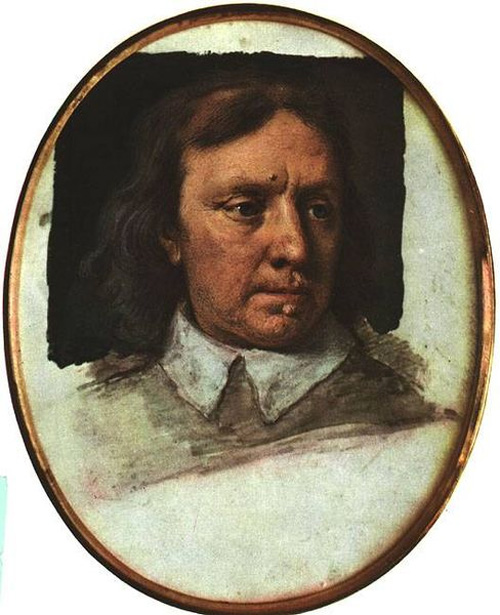Oliver Cromwell 1658-1958
Classic Pamphlet

Changing Interpretations
Ever since the death of Oliver Cromwell 300 years ago his reputation has been the subject of controversy. The royalist view of him was expressed by Clarendon: "a brave bad mad," an ambitious hypocrite. This interpretation was supported by many former Parliamentarians: Edmund Ludlow regarded Cromwell as the lost leader who jettisoned his early radical ideas on rising to power himself. The only aspect of Cromwell's policy that the next generation praised unreservedly was aggressive foreign policy and support for trade. Pepys's famous phrase- "What brave things he did and made all the neighbour princes fear him"-is only one of many rueful assessments made while the last two Stuarts were squandering the heritage of the Interregnum. But after William III resumed the policy of trade wards and colonial expansion there was less reason for remembering Oliver.
When radicalism revived in the later eighteenth century, the Yorkshire Association and Major Cartwright, the Corresponding Society and Cobbett, recalled Hampden, Pym, Prynne; but Cromwell was viewed critically by radicals like Mrs. Macaulay no less than by Tories like Hume. The Vicar of Wakefield looked back with admiration to the Levellers, Blake and Wordsworth to Milton, but literary eulogies of Cromwell are far to seek. In Crabbe's Frank Courtship a dour and old-fashioned country trader who admired Oliver kept his portrait face to the wall, to be turned round only in the safe company of close friends. Crabbe may have grown on a sub-literary tradition among the middling groups; the phrase "in Oliver's days" to describe a time of exceptional prosperity...
This resource is FREE for Student HA Members.
Non HA Members can get instant access for £3.49

